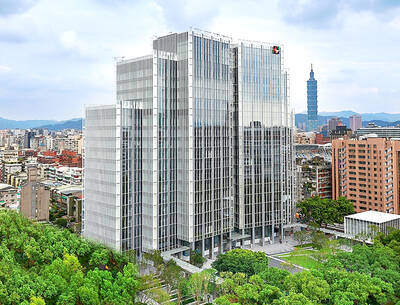Singapore’s DBS Group Holdings, Southeast Asia’s largest bank, said it has US$400 million of outstanding loans in troubled Dubai World, a potential loss it called “manageable.”
DBS said it has lent a total of US$1.3 billion to Dubai-owned companies, while the credit to a finance arm of Dubai World represents 0.2 percent of the bank’s balance sheet.
“The bank believes that the situation is manageable as a substantial portion of this is to Dubai-owned companies operating in Asia that are sound,” such as Labroy and South Beach, the bank said in a statement on its Web site.
South Beach is a prime commercial and residential joint venture in Singapore’s convention district, while Labroy Marine is a local shipyard.
Dubai World, the city-state’s main development conglomerate, said last week it is seeking a six-month reprieve on paying its US$60 billion debt. The announcement sent shockwaves around the world on Thursday and Friday as investors feared a possible default by Dubai and its state-owned businesses, which together owe an estimated US$80 billion.
Stock markets in the United Arab Emirates plunged for a second day yesterday. The Emirati stock markets of Dubai and Abu Dhabi closed trading down 5.61 percent and 3.57 percent respectively, as investors continued a selloff triggered by Dubai World’s debt woes.
Spokesmen for Singapore’s two other homegrown lenders, the United Overseas Bank and the Oversea-Chinese Banking Corp, said yesterday that they had no significant exposure to Dubai borrowers.
Singapore’s central bank said the country’s exposure to the United Arab Emirates, of which Dubai is one of seven emirates, is less than 1 percent of total banking assets.
“We do not expect developments in Dubai to adversely affect Singapore’s financial stability,” said the bank, known as the Monetary Authority of Singapore (MAS). “MAS continues to be in close contact with the financial institutions here, and with central banks and regulators in key jurisdictions.”
Singapore property giant City Developments Ltd (CDL), part of the South Beach joint venture in which Dubai World has a one-third share, said yesterday that it did not expect any impact on itself or the project.
However, it added it was prepared to inject more funding if needed.
“Should the joint venture company require additional funds in the future, the shareholders may be called upon to put in their proportionate share of funding,” CDL said in a statement.

UNCERTAINTY: Investors remain worried that trade negotiations with Washington could go poorly, given Trump’s inconsistency on tariffs in his second term, experts said The consumer confidence index this month fell for a ninth consecutive month to its lowest level in 13 months, as global trade uncertainties and tariff risks cloud Taiwan’s economic outlook, a survey released yesterday by National Central University found. The biggest decline came from the timing for stock investments, which plunged 11.82 points to 26.82, underscoring bleak investor confidence, it said. “Although the TAIEX reclaimed the 21,000-point mark after the US and China agreed to bury the hatchet for 90 days, investors remain worried that the situation would turn sour later,” said Dachrahn Wu (吳大任), director of the university’s Research Center for

Alchip Technologies Ltd (世芯), an application-specific integrated circuit (ASIC) designer specializing in artificial-intelligence (AI) chips, yesterday said that small-volume production of 3-nanometer (nm) chips for a key customer is on track to start by the end of this year, dismissing speculation about delays in producing advanced chips. As Alchip is transitioning from 7-nanometer and 5-nanometer process technology to 3 nanometers, investors and shareholders have been closely monitoring whether the company is navigating through such transition smoothly. “We are proceeding well in [building] this generation [of chips]. It appears to me that no revision will be required. We have achieved success in designing

PROJECTION: KGI Financial said that based on its foreign exchange exposure, a NT$0.1 increase in the New Taiwan dollar would negatively impact it by about NT$1.7 billion KGI Financial Holding Co (凱基金控) yesterday said its life insurance arm has increased hedging and adopted other moves to curb the impact of the local currency’s appreciation on its profitability. “It is difficult to accurately depict the hedging costs, which might vary from 7 percent to 40 percent in a single day,” KGI Life Insurance Co (凱基人壽) told an investors’ conference in Taipei. KGI Life, which underpinned 66 percent of the group’s total net income last year, has elevated hedging to 55 to 60 percent, while using a basket of currencies to manage currency volatility, the insurer said. As different

Taiwanese insurers are facing difficult questions about the damage of recent swings in the New Taiwan dollar. Regulators might have a partial solution: letting firms change how they calculate the value of foreign currency assets. The Financial Supervisory Commission (FSC) is considering allowing insurers to use six-month average exchange rates when they calculate risk-based capital in their semiannual reports, a shift from the current system where insurers use exchange rates on the final day of reporting. The change could ease pressure on the US$1.2 trillion insurance sector, whose huge exposure to foreign assets came into the spotlight earlier this month after a